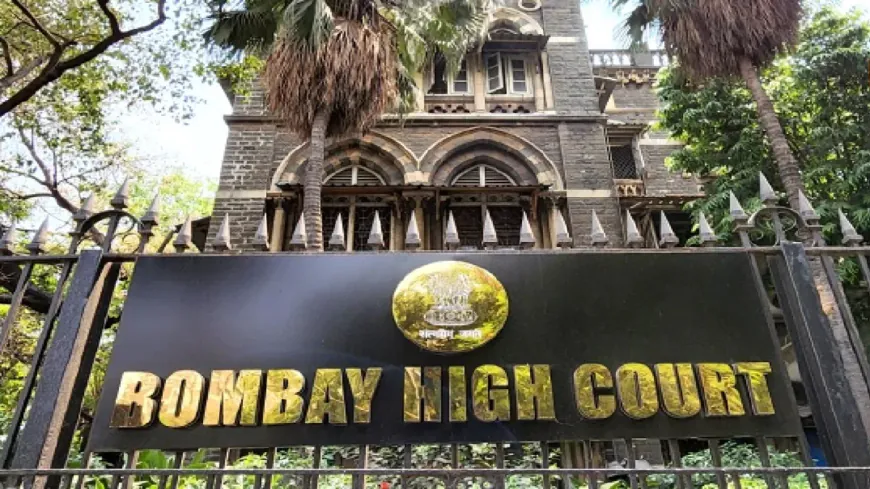Bombay High Court Decides in Favour of Kochi Tuskers Kerala in Long-Pending Row with BCCI
For the long-drawn battle between Kochi Tuskers Kerala and the BCCI, the Bombay High Court has come on the side of Kochi Tuskers Kerala and has a major breakthrough in the ILP franchise's fight for justice.

The Bombay High Court has delivered a resounding judgment against the Board of Control for Cricket in India in a landmark court case concerning the erstwhile Indian Premier League team Kochi Tuskers Kerala.The court has also sustained an arbitration award made earlier and directed BCCI to compensate the Kochi franchise with an amount of 538 crore rupees. The ruling is a significant milestone in a long-running legal battle between Kochi Cricket Private Limited and BCCI. The order was issued by Justice RI Chagla who stated that the court could not interfere with the decision already given by the arbitrator. The court refused to accept the appeal made by BCCI and clearly stated that there was no legal fault in the arbitration that had been passed before. As per the reports, BCCI has six weeks if it needs to appeal this judgment to the Supreme Court.
The Kochi Tuskers Kerala was one of the two new franchises that were included in the IPL prior to the 2011 season.The team was headed by ex-Sri Lanka captain Mahela Jayawardene and featured prominent names in the team such as Ravindra Jadeja VVS Laxman Steve Smith and Brendon McCullum. But the team operated in the league only for one season and its contract was cancelled by BCCI in September 2011. The team was owned by Kochi Cricket Private Limited which is a joint venture by different companies and associates such as M/s Anchor Earth Pvt Ltd M/s Parinee Developers and others. Among these partners M/s Rendezvous Sports World was one of the primary petitioners of the case against BCCI.
The genesis of the case started when Kochi Cricket Private Limited did not produce a revised bank guarantee in time. Reminders had been issued by BCCI to the franchise and it had sought to be filed the necessary documents. On the 17th of September 2011 the franchise notified BCCI that it would produce the bank guarantee by September 21st. This request, however, was rejected by BCCI and asked for the bank guarantee on the very same day. Since the condition was not met, BCCI resolved to cancel the franchise agreement and cashed in the previous bank guarantee. This prompted Kochi Cricket Private Limited to file an arbitration proceeding on the basis of wrongful termination.
The arbitration proceeding was conducted and on June 22 2015 the BCCI was requested to compensate the franchise a huge amount. This figure was arrived at being 153 crore rupees together with 18 percent interest from the date of termination to the last date of the award. Following this judgment BCCI challenged the ruling in the Bombay High Court in September 2015. In April 2018 the court granted a stay on the award but that order was later changed by the Supreme Court and BCCI were ordered to deposit 100 crore rupees in court. BCCI obeyed this directive and deposited the amount in July 2018.
Now after years of legal proceedings the Bombay High Court has made a final ruling. The court has rejected all the petitions made by BCCI and has upheld the original arbitration award. The court has also permitted Kochi Cricket Private Limited and its associates to withdraw the sum that was deposited by BCCI. This withdrawal may occur after four weeks' waiting period from the day of judgment. Justice Chagla in his more than 100-page long judgment categorically said that the awards in arbitration had no sort of serious error that was needed to be intervened by the courts.
The Kochi Tuskers Kerala's IPL journey was short but dramatic. The team was purchased for about 33 million US dollars and the initial signs were good with experienced overseas professionals and Indian youngsters. However, internal conflicts between the franchise and the BCCI soon caused tension. Conflicts over franchise fees the number of games and arrangements for stadiums added to the woes. The franchise had even sought an adjustment in match fees and had written to BCCI to permit them to play at the Jawaharlal Nehru Stadium until a new stadium could be prepared. But their applications were denied and the BCCI proceeded with stringent measures that ultimately led to the cancellation.
The case ranks among the most discussed legal wars in IPL history and denotes the manner in which franchise agreements and monetary obligations need to be treated with caution. It also indicates how arbitration is capable of offering a clear forum for settling big issues in sports. The Kochi franchise maintained its stand for more than a decade and finally received a ruling that has gone in its favour. With 538 crore now to be paid by BCCI the outcome will also impact how future contracts are made and managed within the Indian Premier League.
Now everyone waits and watches BCCI to determine if it will approach the Supreme Court or follow the order issued by the Bombay High Court. Either way the verdict has ended a long chapter in IPL history. The Kochi Tuskers Kerala might no longer be a team in the cricket league but their struggle for justice has made a huge example of how justice can be obtained even years after an occurrence has happened. The judgment is not only about money but also about the significance of rules obligations and keeping promises in professional sport.



 admin
admin